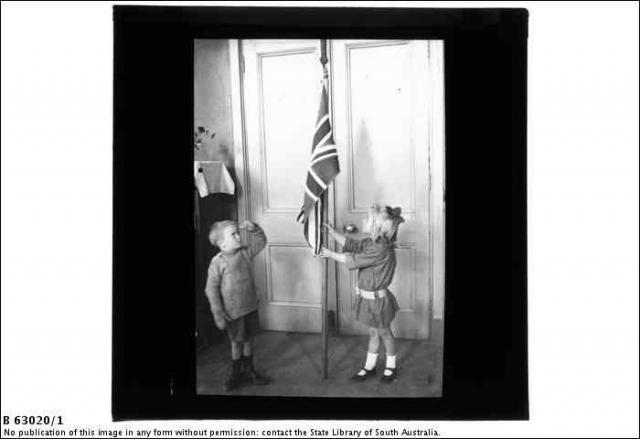Search
Democracy Links
Member's Off-site Blogs
unthinking bigotry .....

from Crikey .....
Tanya Plibersek takes the pledge
Charles Richardson writes
KIM BEAZLEY, MALAYSIAN SOLUTION, PLEDGE LOYALTY, PLEDGE OF ALLEGIANCE, TAMPA, TANYA PLIBERSEK
As trial balloons go, this one hasn't floated very far. Last week, speaking to Gerard Henderson's Sydney Institute, the federal social inclusion minister (sic), Tanya Plibersek, suggested that Australian schoolchildren should learn and recite the pledge used in citizenship ceremonies, pledging loyalty to "Australia and its people".
Her call has been pretty much ignored so far. So why shouldn't young Australians pledge allegiance in the same way that new citizens do?
Two reasons spring immediately to mind. First, because they're children: the citizenship pledge is designed for adults, who are presumed to know what they're doing and understand the obligations they're taking on. Children, particularly in a school setting, don't have that luxury. Even if the pledge were to be voluntary in theory, the official setting and peer pressure would remove any meaningful element of choice for most students.
The second reason is that most students are already citizens.
Citizenship is their birthright; reciting or refusing to recite a pledge of allegiance would make zero difference to that. Plibersek's proposal amounts to a suggestion that they need to do something extra before becoming "real" Australians, an idea that undermines the whole notion of citizenship by birth.
I've been thinking a bit about citizenship recently (I have a piece on it in the current edition of Policy, although for now it's subscriber-only), and in the long run I suspect that citizenship will lose most of its special status. The attempt to reinforce the notion of "allegiance" -- already problematic due to our liberal dual-citizenship laws -- is a throwback to an earlier era, fighting against the trend.
It also draws explicitly on the American practice of reciting the US pledge of allegiance, despite the supreme court ruling that such requirements are unconstitutional. In the leading case of West Virginia State Board of Education v. Barnette in 1943, Justice Robert Jackson laid down that "If there is any fixed star in our constitutional constellation, it is that no official, high or petty, can prescribe what shall be orthodox in politics, nationalism, religion, or other matters of opinion, or force citizens to confess by word or act their faith therein."
In the 1988 presidential election, Democrat Michael Dukakis was wrong-footed by attacks for having vetoed a pledge of allegiance requirement in Massachusetts. Gary Trudeau in Doonesbury had a political consultant telling Dukakis to reply with "You know, not so long ago, people were beaten and driven from their homes for refusing to say the pledge on religious grounds. Does the vice-president really identify with that kind of unthinking bigotry?"
But Plibersek seems immune to such considerations. Her pledge call is reminiscent of former education minister Brendan Nelson and his mad attempts to have students salute the Australian flag. But it also taps into a rich vein of Labor attempts to outbid the Coalition in jingoism.
Back in 2006, for example, then-leader Kim Beazley suggested that applicants for an Australian visa should be "required to sign off on" a statement of Australian "values". This was supposed to be a weapon against "extremists and terrorists", although it was unclear how many terrorists would be deterred by the need to tick such a box on their visa form.
These recurring attempts are not just bad policy, but foolish politics.
If the things driving your choice of who to vote for are xenophobia and unthinking nationalism, you're going to go for the Coalition -- Tampa alone should have made that clear. But just like the Malaysian Solution, Plibersek's idea shows that the lesson has not been learnt.
- By John Richardson at 3 Oct 2011 - 4:02pm
- John Richardson's blog
- Login or register to post comments
Recent comments
1 hour 57 min ago
4 hours 54 min ago
7 hours 13 min ago
16 hours 53 min ago
17 hours 42 min ago
1 day 42 min ago
1 day 4 hours ago
1 day 6 hours ago
1 day 6 hours ago
1 day 7 hours ago